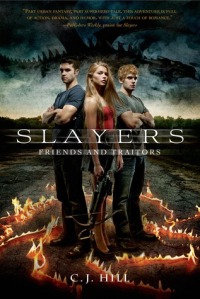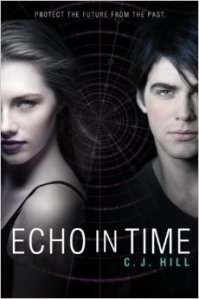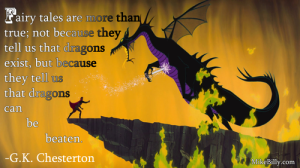Monday, July 21, 2014
Thursday, March 20, 2014
CRITIQUES- A NECESSARY EVIL IN A WRITER'S WORLD.
At some stage in the writing process, most writers want feedback on their work. Here are some tips on how to organize and receive helpful critiques.
The Critiquer:
As a critiquer, your job is
to understand the writer's goals and help the writer achieve them.Every writer has a
different voice and approach. It is sometimes tempting to change someone else's
piece to make it more like something you would write. Instead, help the
writer produce the best possible version of what that writer is trying to
write. Consider the piece on its own terms and help it fulfill its potential.
It’s suggested to read the
piece through from beginning to end to get the experience as a reader. Don’t
get right into the critiquing part until your 2nd time reading. Take
notes of your first impressions.
Suggested
Critique Format:
1. First, summarize and interpret. At this first stage, you are not judging the piece or offering suggestions. You are just telling the author what you think it is about, and what you think it is trying to do. This is important because it tells the author how well he or she has succeeded in communicating.
Do's
and Don'ts:
DO:
·
Read
the piece several times
·
Impose
your own tastes or world view
(critiques aka "bleeding all over" the manuscript.)
The Author's Role:
We suggest that the author try not to talk at all during an oral critique except to ask clarifying questions at the end. There is a natural tendency for authors to try to explain their work, particularly if they see that the critiquer has not understood it the way they intended.
Advice
on Receiving a Critique:
If you're on the receiving end of a critique, focus on listening and understanding the feedback you receive. You don't have to agree with it. You won't have to follow any of the suggestions you're given.
In fact, some of the suggestions you get are likely to be not-so-useful. You will have to sort them out from the useful ones and make your own decisions. But save this sorting-out for later. Otherwise, the sorting-out process will interfere with your ability to listen. And you'll probably do a better job of sorting out the good advice from the bad if you take some time first to digest everything.
Take careful notes on all the feedback and ask questions if there's something you don't understand. Don't argue with the critiquer or defend your piece. Don't even try to explain it.
After the critique, we suggest taking a break before you try to sort the feedback out. Getting a critique can be hard. Relax a little afterwards. This break might last twenty-four hours or a couple of weeks -- however long you need to get some emotional distance on the process. Then take a fresh look at what you've written. Reread your notes on the critique.
Which suggestions do you agree with? Which ones do you want to ignore? If you're not sure about a suggestion, do some experimental rewriting. Try it out. There's no risk. If you don't like the result of the revision, you can always trash it and go back to the original version.
Remember: you're the author. You're the one in charge here.
Traditional critique groups - Pro's and Con's:
Pro's:
First and foremost, traditional critique groups can help clean up a new writer’s technique.
In a good traditional critique groups you will learn that POV does not mean “Prisoners of Vietnam.” You will learn to spot passive voice and will even learn why adverbs aren't always extra-nifty. You will hopefully learn self-discipline in that you need to attend regularly and contribute. You will forge friendships and a support network.
Con's:
Traditional critique groups can lack perspective:
Reading ten pages every month may clean up sloppy writing but traditional critique groups are looking at a work the size of a skyscraper with a magnifying glass. They lack the distance to see flaws. A novel can have perfect writing style page to page and yet have faults. Traditional critique groups can tell you nothing about turning points or whether a scene fits properly. They lack the background to be able to discern if our hero has progressed sufficiently along his character arc by the mid-point of Act 2. They have zero ability to properly critique pacing, since pacing can only be judged in larger context. In traditional critique groups, sitting around the table reading a few pages can’t give you the big picture. It's hard to pick up a story on page 86 and understand what's going on.
Traditional critique groups can offer
a false sense of security:
You must always be looking for ways to have our work critiqued by professionals who are willing to be blunt and who possess the skill-set to see our errors. Gathering together because we love writing is always a great idea but make sure to reach beyond our group for additional critique. Make sure your work is being reviewed by people who will be honest about any problems.
Critique groups are WONDERFUL. Every writer should be a part of a critique group. You just need to be aware of the trouble spots so that you can get the most out of this fantastic resource.
Full article found at http://warriorwriters.wordpress.com/2012/01/16/can-critique-groups-do-more-harm-than-good/
Here’s a brilliant idea to get the most out of a critique group:
Introducing Concept Critique by Kristen Lamb - author
of the #1 best-selling books We Are Not Alone—The Writer’s Guide to Social Media and Are You There, Blog? It’s Me, Writer.
http://warriorwriters.wordpress.com/2012/02/06/a-new-approach-to-a-traditional-group-the-concept-critique/
Instead of bringing the first ten pages of your novel, write a 10 page synopsis based off what you did when you were plotting. Or, for those pantsers, go back and show the scenes of the WIP you've written. Every scene should have a one-sentence summary, so writing a synopsis now should be a piece of cake. A scene-by-scene critique is a far better use of time than taking a year to get line-edit on a potentially flawed WIP.
Once you have your novel as a whole
critiqued, take it to the next step. The next time you meet take Act One and write a ten
page synopsis of what happens in Act One. Get critiqued. Clean it up. Then, take
Act Two and Act Three and do the same. Write ten page synopses about what
happens in each act. Then take it to the next step. Break your act into scenes
and write a summary of what happens in each scene.
This way you
are cleaning up your concept. Your fellow writers now can help
you by brainstorming better ways to build your mousetrap. And, since they have
an idea of the BIG picture, their advice will be a lot better. They might even
be able to offer insight into how to fix the idea before you invest the next
year writing a book that is doomed from day one because the original idea
needed to be fortified before it could support 60-100,000 words. Or, if you
have already written the novel, you will have a better idea how to tackle
revisions.
Once you have
solid critique on all these summaries, take off and write/revise that novel.
Now it will be way easier because you know where you are going. Also,
because your writer friends helped in the planning phase, they will be better
trained to see flaws once they critique your final product.
My personal suggestions on critiques:
·
Critiques are better if
you find someone who reads in your genre.
·
Critique partners and/or
beta readers are a must. Worldliterarycafe.com has a spot for finding critique
partners/beta readers. Personally I loved this experience. I found an author who wrote
in the same genre and we exchanged stories. It was someone I didn't know so
they could be honest and blunt and not hurt our friendship.
·
Small critique groups with 3 - 4 people have been a wonderful experience for me - we meet together once a week. Send pages ahead so we can read it over. We give an oral critique and a written or e-critique to view later.
Critiques may be a necessary evil in the writing world but it doesn't have to be a bad experience. It's a tool to help get our very best work published. Find what works for you.
Happy Writing! Happy Critiquing!
Wednesday, January 29, 2014
Book review of Slayers Friends and Traitors book #2 in the series

After the dragon summer camp is over, everyone has to return to their normal lives. Tori wants Jesse to break the rules and see her over the school year. As captain, he won’t do it and tells Tori to see other people. She’s crushed and cries on Dirk’s shoulder.
As a spy, Dirk doesn't mind breaking the rules and sends Tori letters. Her dad’s a senator so it’s easy to track her down. They secretly start corresponding.
Tori fears the eggs have hatched— her special skill is hearing what the dragons do. Dirk’s special power is dragon-sight and he claims to see nothing. Dr. B believes Dirk. Tori makes a surprise visit to Dirk’s football game to confirm that he hasn’t seen anything. Dirk’s a major player and Tori knows it, but he seems to really like her. Unlike Jesse, Dirk wants to be with her.
When Jesse gets attacked, all the Slayers meet up to figure out how the Dragon Lord knows where they live. Everyone together is just what the Dragon Lord wants.
This is a great sequel. I’m so Team Jesse, but I’m a little Team Dirk too. He’s a bad boy you can’t help feel sorry for. I’m a believer now in dragons and love the way the story makes mystical creatures come to life. I can’t wait until book 3. C.J. Hill writes thrilling action scenes and romance that will steal your heart.
Book one is a must read too.
Buy the book at :
Saturday, January 25, 2014
Book review of Allegiant by Veronica Roth
It took me forever to read the last book in the series. And not because it isn't an excellent story, but I knew I wasn't going to like the ending based off the major outrage by fans. I took my time reading because I wanted to savory Tris and Four’s relationship. They were finally, what I hoped, out of danger and could really enjoy each other. The truth, in their world they are never out of danger, and Tris and Four find themselves on different sides. Did I get a little tired of them bickering and almost breaking up? Sure. But reality is they were experiencing very stressful events. Life and death experiences can make anyone high strung.
There were so many quotes and thoughts that I absolutely loved from this story. For instances; when Christina says, “Being honest doesn’t mean you say whatever you want, whenever you want. It means what you choose to say is true.”
When Tris says, “… I think that no matter how smart, people usually see what they’re already looking for...”
And in the end I’m happy that Tris discovers, “And I know, without being told, that’s what love does, when it’s right— it makes you more than you were, more than you thought you could be.”
Did I like the ending? No, but I'm a happily-ever-after kind of reader. I live in reality, a world full of sorrow and death, so when I read I want to escape that reality. I understand there are plenty of people out there who love the tear-jerking sad stories. I don't mind reading them once in a while but I truly can't give them a 4 or 5 star rating because they aren't stories that I'm going to read over and over again.
"Allegiant” is a well written book. This is a great Dystopia series. And I became fully involved in Four and Tris's life.
It's interesting to read Veronica’s reasoning for her ending. You can find that on her blog and keep up to date with the movie releases. http://veronicarothbooks.blogspot.com/
Thursday, January 2, 2014
Book Review of Echo in Time by C.J. Hill
What a great sequel to Erasing Time! There are some very sad moments and plenty of funny moments too. C.J. Hill is a clever writer. It’s Dystopia, Time Traveling, and Romance all wrapped up in an Action Adventure Story. The book continues with the funny slang words we use that make no sense in the future. For instance this scene between Echo and Taylor:
Really?” Taylor asked him. “You would try to pick me up?”
Echo tightened his grip on her waist. “Do you need me to carry you again? Are you having trouble walking?”
"No,” she said. “Picking someone up is a twenty-first-century way of saying that, you know, you’re hitting on someone.”
Hitting on someone? Before he could ask that, she said, “I mean, you want to hook up with them, hang out…” She must have seen the blank look on his face. “It means you’re interested and you want to date them.”
He lifted his eyebrows. “That all sounds so violent. What exactly did you do on dates in the twenty-first century?”
So funny! And there is plenty more where that came from.

If you haven't read book one Erasing Time you need to.

Spoiler alert if you haven’t read book one: The story continues with Taylor and Sheridan who got sucked up in a time machine to the 25th century. It’s only been a couple months since they escaped Traventon. They are living in Santa Fe. Sheridan and Joseph (In book one, Erasing Time he pretends to be Echo, his dead twin brother.) are in the beginnings of a developing relationship. The government in Santa Fe believes the time strainer is dangerous. Taylor and Joseph and some of Santa Fe’s finest military men are picked to go back and destroy the machine. The assignment is dangerous but all is going as planned until they learn everyone has their own secret mission. When Joseph uses the time machine to save his twin brother Echo it messes with time and now Sheridan never escaped from Traventon. Joseph has to save her before her mind is wiped clean. Echo is trying to help Taylor destroy the time strainer but he has his own agenda too and nothing is going smoothly. Will they be able to escape Traventon, again?
If you live in Arizona you'll want to attend the book signing event with C.J. Hill on Jan 7th at 7pm. At Changing Hands Bookstore 6428 S McClintock Dr Tempe, AZ 85283 See you there!
If you can't make the book event you can purchase your book at:
http://www.changinghands.com/book/9780062123961
http://www.amazon.com/Echo-Time-C-J-Hill/dp/0062123963
http://www.barnesandnoble.com/w/echo-in-time-c-j-hill/1116128457?ean=9780062123978
Really?” Taylor asked him. “You would try to pick me up?”
Echo tightened his grip on her waist. “Do you need me to carry you again? Are you having trouble walking?”
"No,” she said. “Picking someone up is a twenty-first-century way of saying that, you know, you’re hitting on someone.”
Hitting on someone? Before he could ask that, she said, “I mean, you want to hook up with them, hang out…” She must have seen the blank look on his face. “It means you’re interested and you want to date them.”
He lifted his eyebrows. “That all sounds so violent. What exactly did you do on dates in the twenty-first century?”
So funny! And there is plenty more where that came from.

If you haven't read book one Erasing Time you need to.

Spoiler alert if you haven’t read book one: The story continues with Taylor and Sheridan who got sucked up in a time machine to the 25th century. It’s only been a couple months since they escaped Traventon. They are living in Santa Fe. Sheridan and Joseph (In book one, Erasing Time he pretends to be Echo, his dead twin brother.) are in the beginnings of a developing relationship. The government in Santa Fe believes the time strainer is dangerous. Taylor and Joseph and some of Santa Fe’s finest military men are picked to go back and destroy the machine. The assignment is dangerous but all is going as planned until they learn everyone has their own secret mission. When Joseph uses the time machine to save his twin brother Echo it messes with time and now Sheridan never escaped from Traventon. Joseph has to save her before her mind is wiped clean. Echo is trying to help Taylor destroy the time strainer but he has his own agenda too and nothing is going smoothly. Will they be able to escape Traventon, again?
Stay in contact with C.J. Hill
If you live in Arizona you'll want to attend the book signing event with C.J. Hill on Jan 7th at 7pm. At Changing Hands Bookstore 6428 S McClintock Dr Tempe, AZ 85283 See you there!
If you can't make the book event you can purchase your book at:
http://www.changinghands.com/book/9780062123961
http://www.amazon.com/Echo-Time-C-J-Hill/dp/0062123963
http://www.barnesandnoble.com/w/echo-in-time-c-j-hill/1116128457?ean=9780062123978
Subscribe to:
Comments (Atom)



















